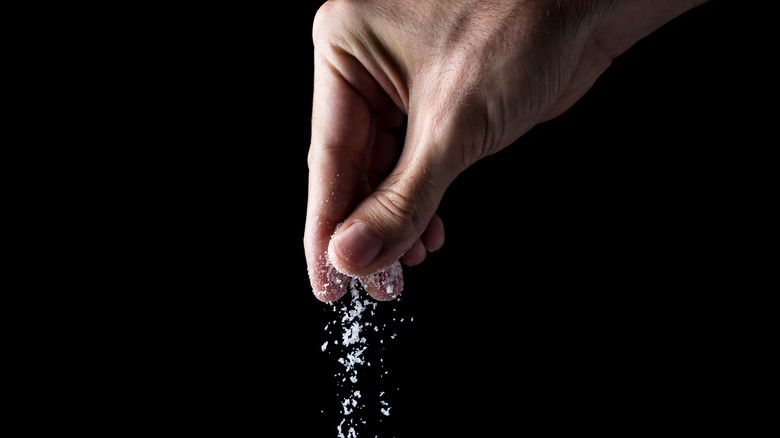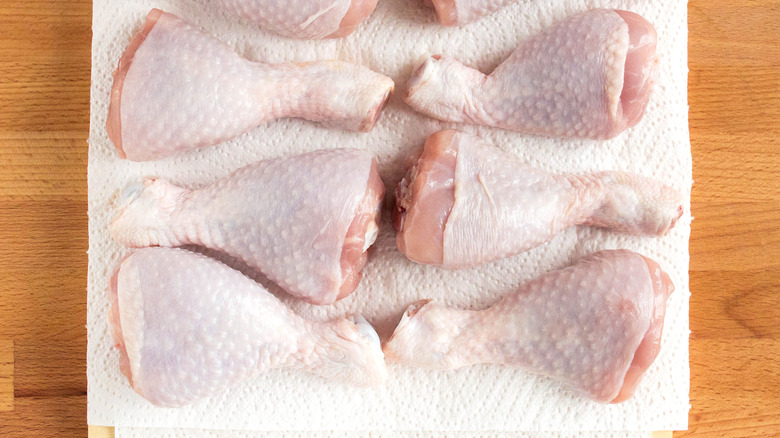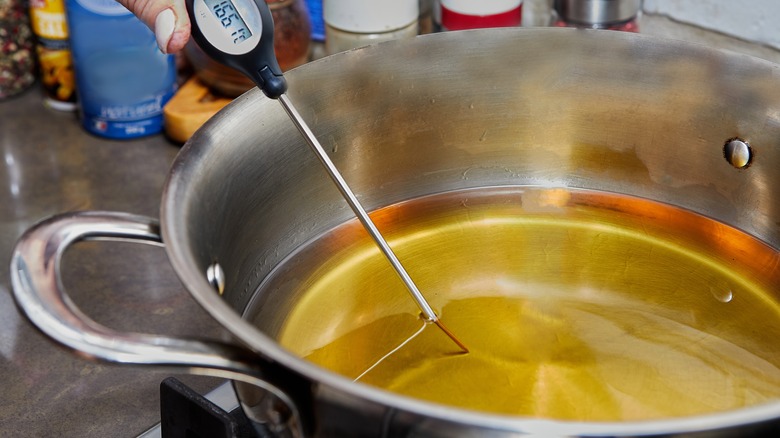Why You Shouldn't Salt Food Before Frying It
It's hard to think of anything more tempting or universally beloved than a plate of perfectly crispy, salty fried food. Whether it's a basket of crispy fried calamari before a big Italian dinner, or a spread of tempura vegetables, frying is one of the most surefire ways to elevate a dish into something memorable and delicious. While many people get their french fries or fried chicken from a drive-thru, there is an extra layer of taste and comfort that can only come from hot, fresh fried chicken straight from your own stovetop.
When it comes to prepping your food, salting it before frying may seem like a no-brainer. Cooks have been taught for years now that salt brings out the flavor and salting early helps it penetrate deeper into your food (per Cook's Illustrated). But frying has some different rules than other forms of cooking. While there are quite a few mistakes you should avoid when deep frying, one of the most fundamental ones is salting your food before dropping it into the hot oil. But why shouldn't you?
Salting food draws out moisture
Having water come in contact with your oil is one of the biggest pitfalls to avoid when deep frying. As Taste Of Home explains, too much moisture on the exterior of your food can cause your oil to pop and sputter, and that moisture can also prevent the exterior of your food from getting crispy, which is probably half the reason you're frying it in the first place. Any amateur cook who has tried deep frying for the first time is likely familiar with the frightening crack of an improperly dried chicken wing or slice of zucchini hitting the oil. Those hot, greasy drops firing out of your pan are dangerous and can lead to some pretty nasty burns.
But where does this moisture come from, and what does salt have to do with it? Salting your food before frying draws out moisture via the process of osmosis (via PopSci). If you salt meat or vegetables and then leave them to sit for a few minutes, you'll probably notice droplets of water forming on the exterior. That's your salt in action. So unless you want to wipe oil residue from every surface around your stove, hold off on the salt until after your food comes out of the fryer.
Salt causes oil to develop odd flavors and colors
Beyond that nice and crispy crust, we love the rich flavor that frying gives our food. However, too much salt in your frying oil can actually give your food an unpleasant taste. According to Pitco, this is because salt can hasten the breaking down of oil through oxidation, a nasty process that creates impurities and can cause your oil and the food inside to become overly brown and taste stale. Nobody wants to go through the trouble of working over a hot vat of oil only to produce a batch of burnt-tasting fried shrimp.
However, Cook's Illustrated says that this problem may be minimized for home cooks, who are likely not using their oil long enough for the salt to ruin it. While this may be the case, you can still get plenty of flavor from other spices and by waiting to salt until after the food comes out of the fryer, as Food Above Gold recommends — so there is not too much reason to risk it.


